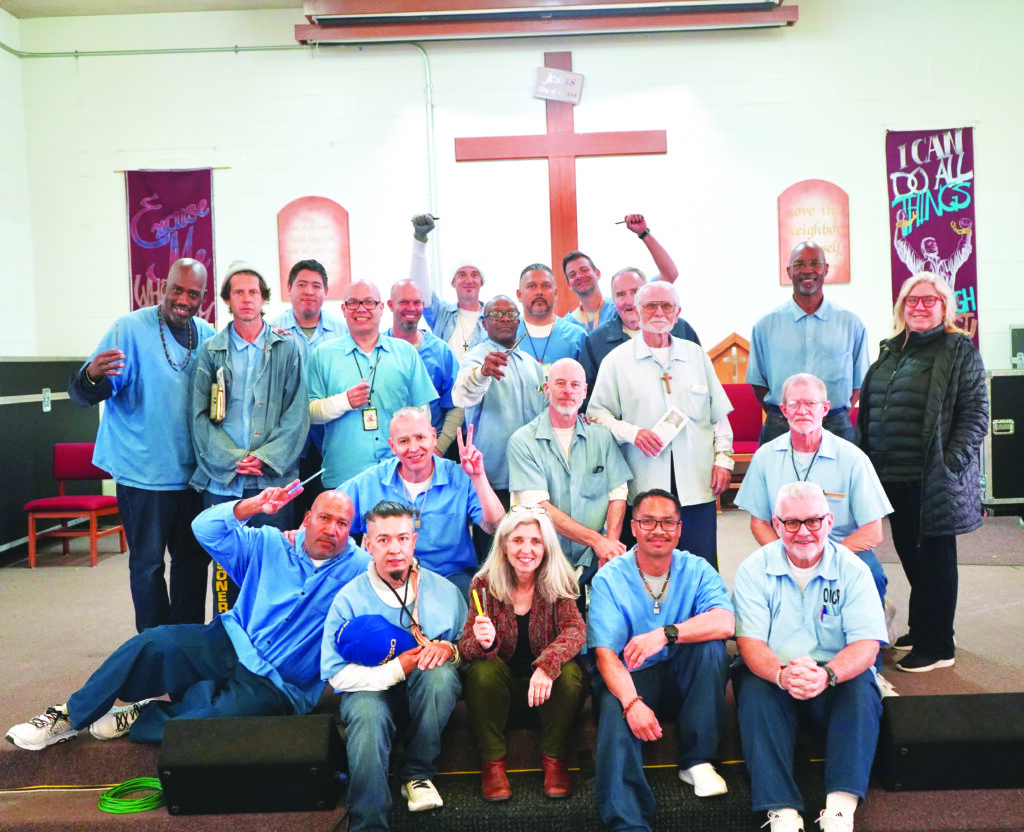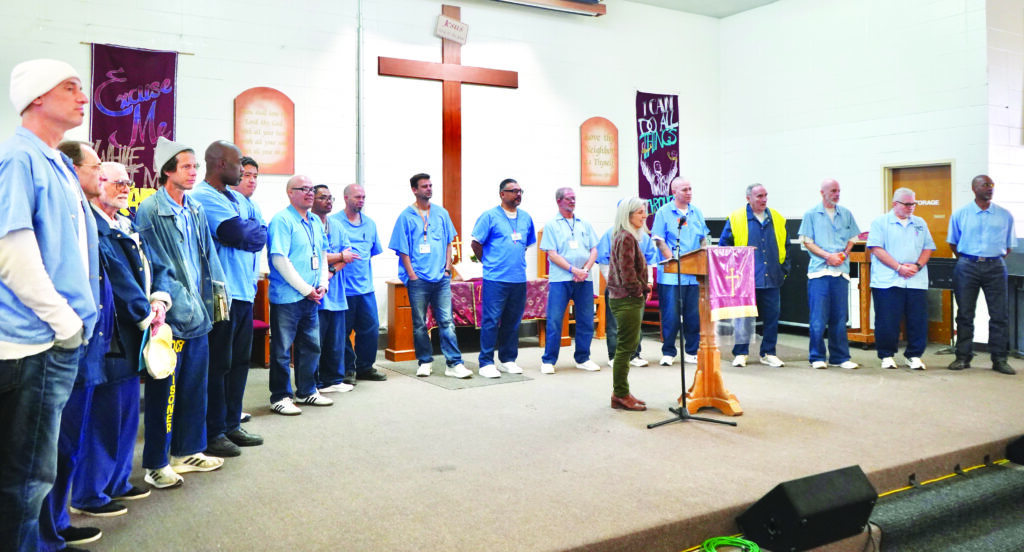Program empowers individuals to learn the power of the pen through storytelling

The creative writing workshop ‘Brothers in Pen’ held its 15th annual public reading at San Quentin Rehabilitation Center inside Chapel B.
The event was hosted by SQ News Editor-in-Chief Kevin D. Sawyer, who has been a part of the writing program for 14 years, and now on his 10th public read.
The event focused on participants sharing their creative writing in front of an outside public audience and residents. This presented an opportunity for the participants to have an outlet where they shared their stories.
Twenty-one participants shared a five-minute story formed around a two-pronged prompt: a theme of metamorphosis in addition to a reflection in a puddle.
Longtime creative writing instructor, Zoe Mullery, expressed her gratitude for those who made this class possible. She said that she still finds joy coming into San Quentin after 26 years of volunteering.
“I just believe listening is a basic human need,” Mullery said. “We all need to be listened to; it’s an essential need of human beings.”
Brothers in Pen has been a voice to numerous incarcerated people empowering them through creative storytelling. The event brought an enormous amount of outside support like Alcatraz park ranger Siena Hinshelwood who listened to the stories shared.
Hinshelwood said that she was impressed with the way incarcerated people consistently worked towards improving themselves, to become better humans, changing the narrative of people in prison.
“Not many people work on themselves on the outside,” Hinshelwood said, seeing firsthand how people can come out of prison and make good with life after confinement. She said she enjoyed working with formerly incarcerated SQ resident Troy Williams with Restorative Media.
Four SQNews journalists, Michael Callahan, Clark Gerhartsreiter, Kevin D. Sawyer, and Edwin E. Chavez, expanded their writing craft beyond journalism by presenting public readings of their personal life experiences unpacked through writing.
Six formerly incarcerated men took to the stage by sharing stories of hope, redemption, and change. They have been a part of ‘Brothers in Pen’ during some point in their incarceration.
Micheal Yahya-Cooke, paroled from San Quentin in 2017, participated in Brothers in Pen for six years. He also wrote articles for SQNews during his incarceration. He said that finding purpose did not come easy after he was released, but with support and dedication, he expanded his storytelling and continued to flourish. He is currently pursuing screen and fiction writing.
“I believe in the power of the pen,” Cooke said.

Resident Joshua Strange shared a story called “Back to the Land”. In the story, he reminisced about his younger self in kindergarten. His parents moved out of his homeland to the United States to pursue the American dream.
He recalled that during summers, his entire family slept in old canvas army tents while cooking around campfires, whereas prison life consists of steel metal doors, alarm systems, and a lack of scenery that can interfere with life enjoyments. Strange now eagerly looks forwards to living in his natural habitat once free.
“People in prison like to talk about returning to ‘the streets’ when they parole, but I will be returning to ‘the woods’ [and] to my native habitat,” Strange said.
At the conclusion of the event, all graduates took the stage together for a Q&A session where they welcomed questions from residents and outside guests.
One guest talked about the pro-social community built inside prison despite all the challenges faced by those incarcerated. He put forward a question to the participants about educational opportunities and medical care challenges they face while in prison.
Resident Steve Drown responded with confidence; he started off with his experience of being incarcerated for 46 years. He discussed how he was exposed to the dangers of prison riots, lockdowns, and being treated badly by custody staff. Drown recently suffered a stroke and two cardiac arrest, and said that he wouldn’t have gotten the same lifesaving treatment if he was at another institution.
Resident Michael Callahan talked about how his family hasn’t gotten the opportunity to hear about his past traumas. He said that writing helps bridge that gap, and create a pathway for him to express what he been through to his family.
“Something I said must have resonated with him,” Callahan said.
Mike Mullery, who is the program instructor’s father, embodies consistency traveling to SQ for his 14th appearance. He shared his empathy for the residents of SQ and said that he is supportive of the men inside these notorious walls.
“I don’t think prisoners are bad people, but I know they have done some bad things,” said Mullery. “People are not the worst thing they have done. You don’t even have to be in prison for that to happen.”